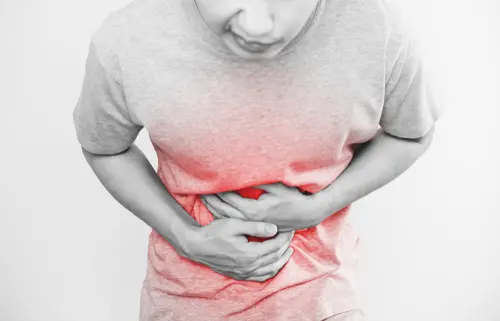- Home
- Medical news & Guidelines
- Anesthesiology
- Cardiology and CTVS
- Critical Care
- Dentistry
- Dermatology
- Diabetes and Endocrinology
- ENT
- Gastroenterology
- Medicine
- Nephrology
- Neurology
- Obstretics-Gynaecology
- Oncology
- Ophthalmology
- Orthopaedics
- Pediatrics-Neonatology
- Psychiatry
- Pulmonology
- Radiology
- Surgery
- Urology
- Laboratory Medicine
- Diet
- Nursing
- Paramedical
- Physiotherapy
- Health news
- Fact Check
- Bone Health Fact Check
- Brain Health Fact Check
- Cancer Related Fact Check
- Child Care Fact Check
- Dental and oral health fact check
- Diabetes and metabolic health fact check
- Diet and Nutrition Fact Check
- Eye and ENT Care Fact Check
- Fitness fact check
- Gut health fact check
- Heart health fact check
- Kidney health fact check
- Medical education fact check
- Men's health fact check
- Respiratory fact check
- Skin and hair care fact check
- Vaccine and Immunization fact check
- Women's health fact check
- AYUSH
- State News
- Andaman and Nicobar Islands
- Andhra Pradesh
- Arunachal Pradesh
- Assam
- Bihar
- Chandigarh
- Chattisgarh
- Dadra and Nagar Haveli
- Daman and Diu
- Delhi
- Goa
- Gujarat
- Haryana
- Himachal Pradesh
- Jammu & Kashmir
- Jharkhand
- Karnataka
- Kerala
- Ladakh
- Lakshadweep
- Madhya Pradesh
- Maharashtra
- Manipur
- Meghalaya
- Mizoram
- Nagaland
- Odisha
- Puducherry
- Punjab
- Rajasthan
- Sikkim
- Tamil Nadu
- Telangana
- Tripura
- Uttar Pradesh
- Uttrakhand
- West Bengal
- Medical Education
- Industry
Incidence, diagnosis, therapy, and prognosis of acute mesenteric ischaemia, AMESI Study reveals

Recently published multicentre prospective observational study was conducted to investigate the incidence, patient characteristics, diagnostic pathway, management, and outcome of acute mesenteric ischaemia (AMI). The study included adult patients with clinical suspicion of AMI admitted or transferred to 32 participating hospitals worldwide. It was found that AMI occurred in 0.038% of adult admissions in participating acute care hospitals, with a total of 705 included patients, of which 418 patients had confirmed AMI. The study revealed that occlusive arterial AMI was the most common type diagnosed, followed by venous AMI and non-occlusive AMI (NOMI).
Management and Outcome of Acute Mesenteric Ischaemia (AMI)
In 69% of cases, AMI was the primary reason for hospital admission, and in 31% of cases, AMI occurred after being admitted with another diagnosis. The median time from onset of symptoms to hospital admission was 24 hours, and the time from admission to diagnosis was 6 hours. Initial management involved surgery in 58% of patients, with 24.4% undergoing revascularization. The overall in-hospital and 90-day mortality rates for AMI were 49% and 53.3%, respectively, with the highest mortality seen in the NOMI subtype (72.7% and 74.5%).
Variability and Need for Standardization in Management of Acute Mesenteric Ischaemia (AMI)
The study also highlighted the variability between participating sites for most variables studied, indicating a lack of standardized management internationally. Furthermore, the findings suggest a need for greater awareness of AMI, better guidance in diagnosis and management, and emphasize the importance of computed tomography angiography and immediate surgical treatment in patients with suspected AMI. The study provided valuable insights into the incidence, characteristics, diagnostic pathways, management, and outcomes of AMI, but also highlighted the need for further research and consensus processes to improve the understanding and management of this condition.
Reference –
Reintam Blaser, A., Mändul, M., Björck, M. et al. Incidence, diagnosis, management and outcome of acute mesenteric ischaemia: a prospective, multicentre observational study (AMESI Study). Crit Care 28, 32 (2024). https://doi.org/10.1186/s13054-024-04807-4
MBBS, MD (Anaesthesiology), FNB (Cardiac Anaesthesiology)
Dr Monish Raut is a practicing Cardiac Anesthesiologist. He completed his MBBS at Government Medical College, Nagpur, and pursued his MD in Anesthesiology at BJ Medical College, Pune. Further specializing in Cardiac Anesthesiology, Dr Raut earned his FNB in Cardiac Anesthesiology from Sir Ganga Ram Hospital, Delhi.
Dr Kamal Kant Kohli-MBBS, DTCD- a chest specialist with more than 30 years of practice and a flair for writing clinical articles, Dr Kamal Kant Kohli joined Medical Dialogues as a Chief Editor of Medical News. Besides writing articles, as an editor, he proofreads and verifies all the medical content published on Medical Dialogues including those coming from journals, studies,medical conferences,guidelines etc. Email: drkohli@medicaldialogues.in. Contact no. 011-43720751


